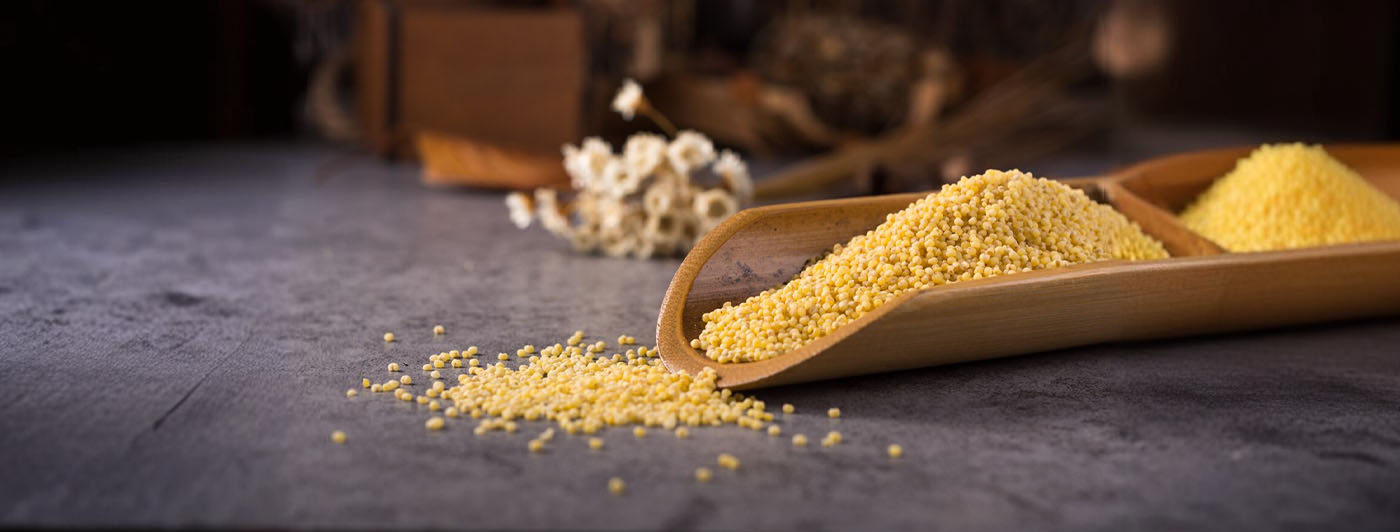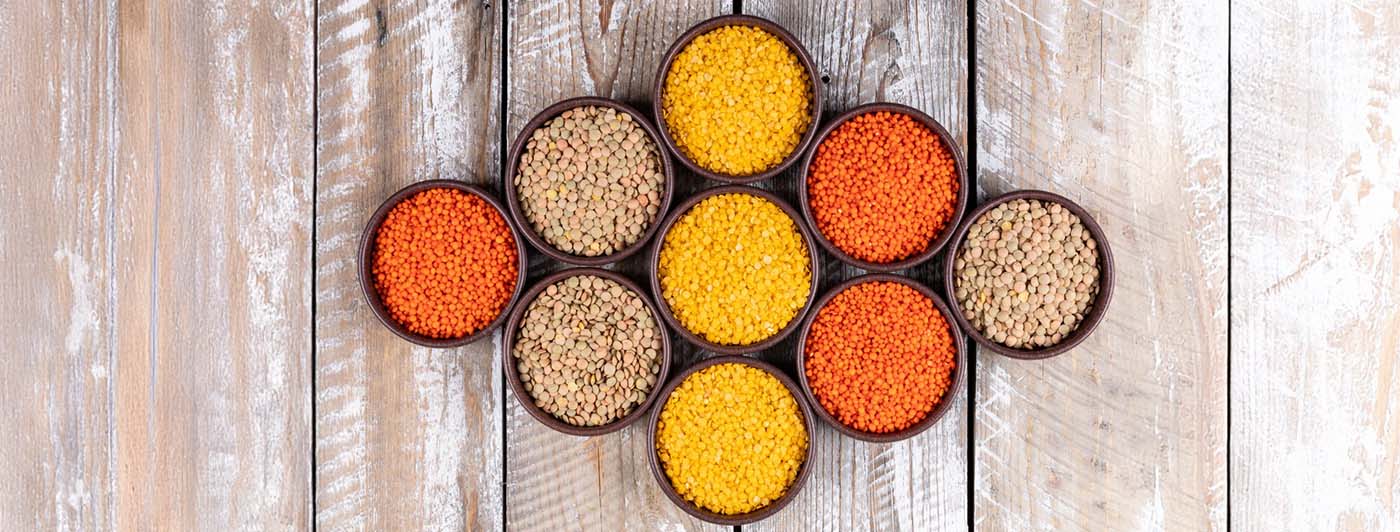Let’s be honest—most “superfoods” get their five minutes of fame and then quietly fade into the background like an old playlist. But quinoa millet? This grainy dream team is here to stay—and for good reason.
Picture this: one tiny bowl, jam-packed with protein, fiber, minerals, and the kind of slow-release energy that makes your morning coffee feel a little insecure. Sounds too good to be true? It’s not. Quinoa millet is what happens when two ancient grains—quinoa from the Andes and millets from the Indian subcontinent—decide to join forces and level up your health game.
We’re talking all-in-one support for muscle building, better digestion, radiant skin, and stable blood sugar. Whether you’re trying to fuel your workouts, crush your weight goals, or just feel good in your jeans again—quinoa millet fits right into your lifestyle without making things complicated.
So grab your fork, and let’s dig into 7 reasons why this humble grain duo might just be your next obsession.

1. Complete Protein Source for Plant-Based Diets
One of the most compelling reasons to choose quinoa millet is its ability to provide a complete protein profile. Quinoa is famously one of the few plant foods that contain all nine essential amino acids, while millets contribute complementary nutrients and fiber.
This is incredibly beneficial for vegetarians and vegans, many of whom struggle to meet their daily protein needs. Unlike most plant-based grains that are lacking in lysine or methionine, quinoa millet delivers a plant protein combination that supports everything from muscle repair to hormone regulation.
If you’re calculating your protein intake per day for muscle gain, consider that one cup of cooked quinoa millet delivers roughly 8 grams of high-quality protein. Pair it with legumes or a plant based protein powder, and you've got a nutrient-dense, muscle-supporting meal.
2. Micronutrient Powerhouse
Beyond protein, quinoa millet is a treasure chest of vitamins and minerals. It’s especially rich in iron, zinc, magnesium, potassium, and B-complex vitamins. Magnesium supports over 300 enzymatic reactions in the body, including muscle and nerve function, while iron aids in oxygen transport.
Adding quinoa millet to your meals can help reduce the risk of anemia and fatigue. For beauty and skin-conscious individuals, combining this grain with vitamin E rich fruits like guava, kiwi, or avocado boosts your antioxidant intake and contributes to skin repair and glow.
Vitamin B2 (riboflavin), found in quinoa, is also essential for proper energy metabolism—a must-have in today’s fast-paced lifestyle. Meanwhile, millets bring phosphorus and calcium into the mix, essential for strong bones and teeth.
3. Promotes Gut Health and Is Gluten-Free
For those with gluten intolerance, celiac disease, or even mild sensitivity, quinoa millet is a dream come true. It is naturally gluten-free and easy on the digestive system. This makes it an excellent alternative to wheat, barley, and rye for people seeking gentle grains.
Its high fiber content(around 5 grams per cooked cup) nourishes the good bacteria in your gut, helping to maintain a balanced microbiome and prevent digestive issues like constipation, bloating, and acid reflux. A healthy gut also plays a role in immunity and mental health—something many overlook.
Regular consumption of quinoa millet supports long-term digestive well-being and may help reduce systemic inflammation. It's the kind of grain that loves your belly back.
4. Supports Skin & Hair from the Inside Out
Looking to improve your skin texture or prevent hair thinning? The answer might lie in your grains. Quinoa millet contains lysine, an amino acid important for collagen production, which keeps your skin firm and youthful. Curious about how to boost collagen in skin naturally? This grain is a key ingredient.
Zinc and selenium, both found in quinoa millet, further support skin repair, reduce acne, and protect against UV damage. When combined with good hydration and nutrient-rich foods, the results can be transformative.
Furthermore, flaxseed benefits for hair loss are well-known, and interestingly, millets contain similar lignans and omega-3s that nourish the scalp and reduce hair fall. If you’re battling hair thinning, pairing quinoa millet with flaxseeds or nuts can significantly boost results.
5. Regulates Blood Sugar and Sustains Energy
Quinoa millet has a low glycemic index and provides sustained energy. This makes it ideal for diabetics, athletes, or anyone trying to avoid energy slumps.
Its complex carbohydrates digest slowly, preventing insulin spikes and offering a feeling of fullness that lasts. This not only curbs sugar cravings but also supports long-term metabolic health.
Additionally, the high magnesium content in quinoa millet plays a key role in regulating insulin function and blood glucose levels. Regular consumption of quinoa millet as part of a broader whole-food diet can contribute to better blood sugar balance, improved energy stability, and enhanced overall metabolic function. For those seeking balanced nutrition, pairing it with a plant based protein powder can further help maintain satiety and support muscle recovery—especially for individuals following a low-GI, high-performance nutrition plan.
6. Weight Management Made Easy
Trying to lose weight or maintain a healthy BMI? Quinoa millet can be your go-to food. High in both fiber and protein, it promotes satiety, curbs mid-meal cravings, and reduces your total daily calorie intake.
When combined with legumes, steamed vegetables, or healthy fats like avocado or olive oil, a quinoa millet meal becomes incredibly satisfying without being heavy. You’ll stay fuller for longer, and that translates into better portion control throughout the day.
Because it’s nutrient-dense but not calorie-heavy, quinoa millet also helps prevent the kind of nutrient deficiencies that often occur with restrictive diets. And if you’re looking for clean vegan protein sources, few whole grains are as effective and versatile as this.
7. Culinary Versatility & Easy Meal Integration
One of the best things about quinoa millet is how easy it is to incorporate into your meals. Whether you’re a culinary novice or a seasoned chef, the grain’s neutral flavor and fluffy texture make it a perfect base for salads, curries, soups, or even breakfast bowls.
You can cook it in vegetable broth for extra flavor, mix it with herbs and spices, or even turn it into patties and wraps. The options are endless—and delicious.
Here’s a pro tip: Make a large batch of quinoa millet at the beginning of the week and store it in the fridge. That way, you always have a ready-to-go, nutrient-packed foundation for lunch or dinner.
Pairing it occasionally with a vegan protein powder smoothie makes your post-workout meal efficient and complete without relying on processed snacks.
Final Thoughts
With its impressive nutritional profile, culinary adaptability, and host of health benefits, quinoa millet is not just a grain—it’s a lifestyle upgrade. It supports muscle growth, gut health, beautiful skin, strong hair, and lasting energy—all while being gluten-free and easy to prepare.
If you're serious about health, whether from a beauty, performance, or longevity standpoint, adding quinoa millet to your diet could be one of the most rewarding decisions you make. And it’s not just about one benefit—it’s the harmony of multiple gains coming together in every spoonful.
A single ingredient. Multiple advantages. Maximum nourishment.












